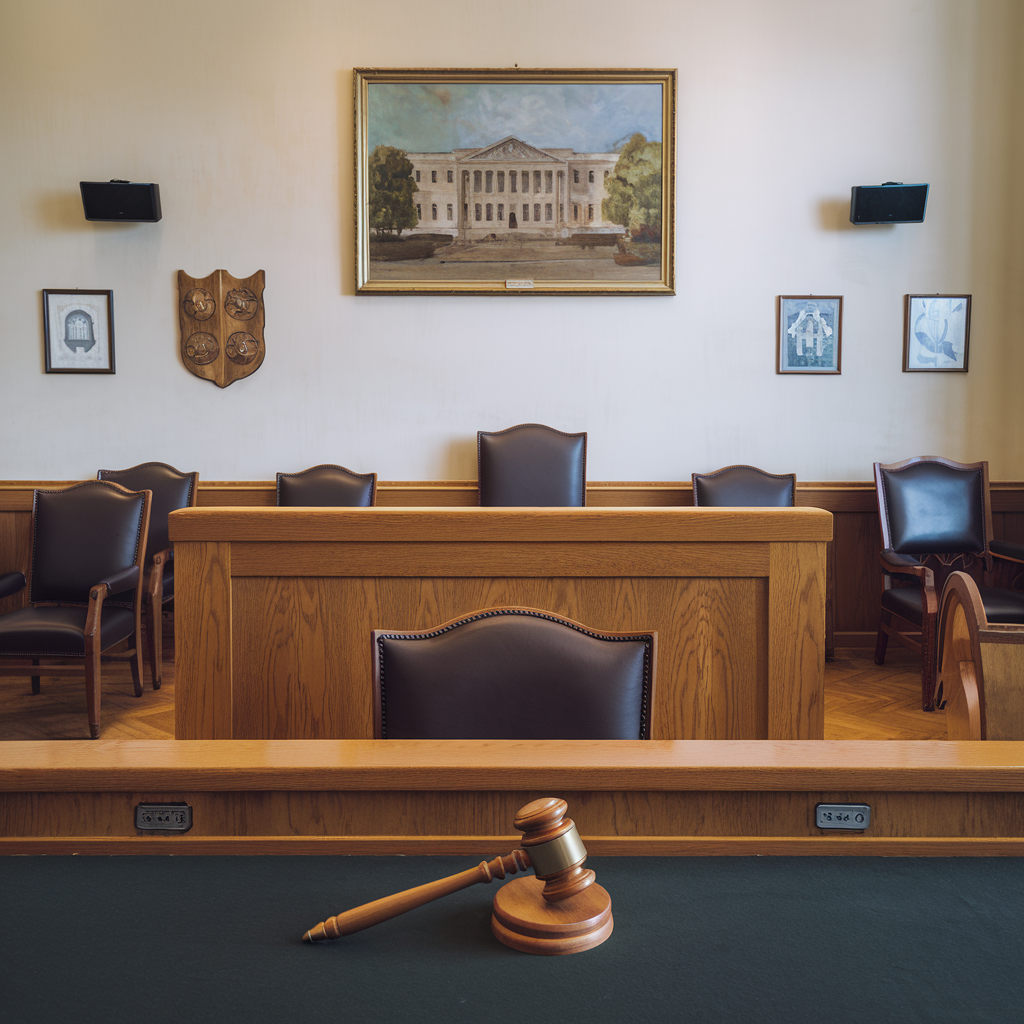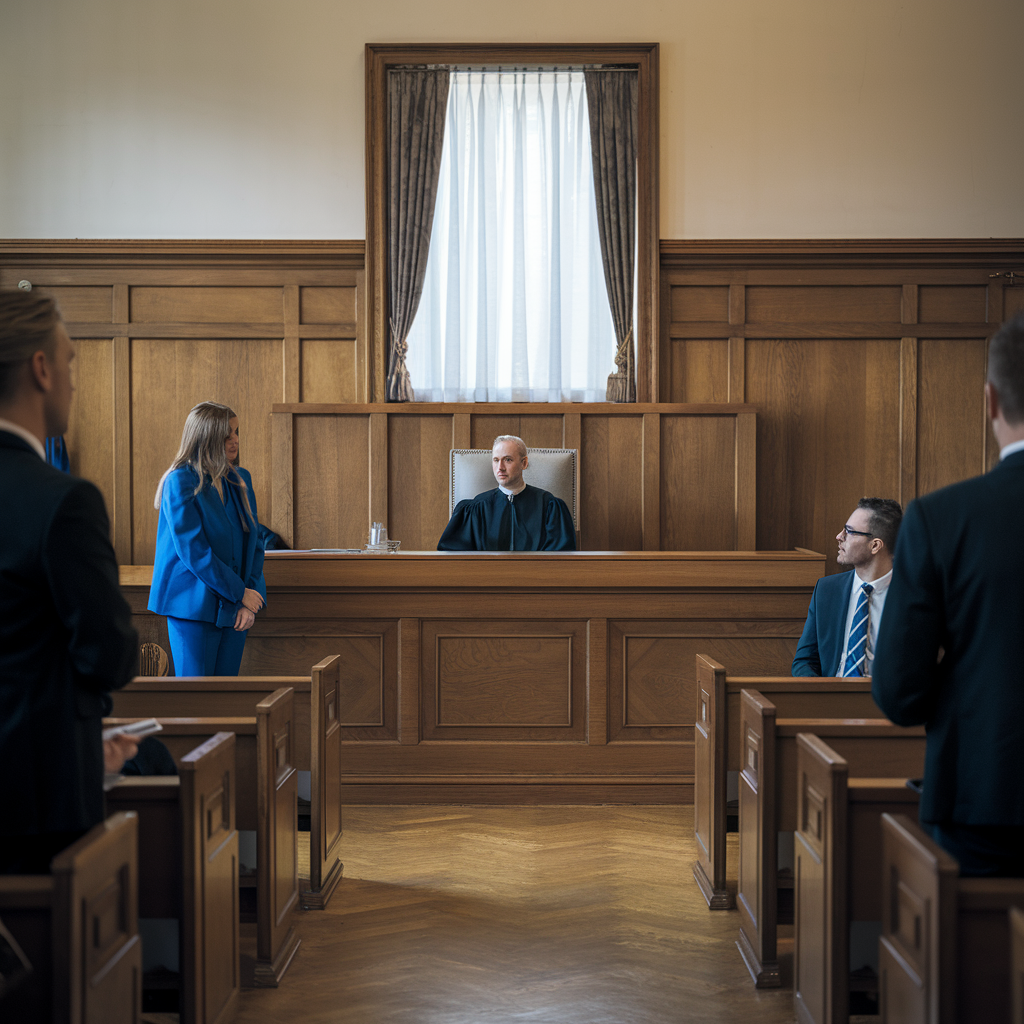People often tend to criminal defense with rights, the two are completely different spheres, one of which stands inside of the other. This could also be one of the reasons why people wouldn’t usually associate court drama with presumption of innocence. Similarly with many things, this shows how important context is. Understanding such principles not only is pivotal for the field itself, but it gives you an understanding of the capability of a single word.
Presumption of Innocence and Defense Counsel are words that stands at the base of proof. We also know that burden of proof is heavy as it rests on the people that are accusing in this case, the prosecution. A core idea of this concept is how they say criminal mentions in the beginning, “it lies with the prosecution”. What this does is highlights the importance of context as stated above, where every case is different and every case has a set of requirements and implications.
Understanding Criminal Defense
With the circles that we have transactioned through so far, it doesn’t come as a surprise that criminal charges are given out every year. Having that being noted, it is safe to say that criminal charges aren’t out of reach for people.
As a defendant, it is also vital to know these two terms, reasonable doubt along with criminal charges. Higher the standard of proof, higher the chances you taking that evidence to court especially with the witnesses testimony. With bear witness intimidation, prosecution establishing control over the witnesses testimony sources and getting charged criminally becomes a mitigation factor for reasonable doubt to exist.
Understanding nature and philosophy behind hearsay and conspiracy can prove to be advantageous as well because there are multiple deterministic loops that exist all around us. And as such one has multiple ways to get out of situations through moral and ethical means such as self-defense.
Let us understand that the chances of the charges escalating into a full-fledged case and the impact of a conviction are some of the relevant factors that may guide your thinking. This means that penalties may include fines as well as imprisonment depending on the degree of offenses.
Another area which should be known and understood is about the available plea bargaining processes. It might end up offering some leniency in the facts or even the conviction.
Finally, learning the ins and outs of criminal defense allows you to handle your situation better. If you possess such understanding and knowledge, then you will know how to make the right decisions and you will be able to protect your interests throughout the entire legal procedure.
Legal Rights of the Accused
It is bleak for a person who faces a trial because he has so many traps that abscond a fundamental needs of justice. Therefore every accused person is provided with special sets of rights termed as Legal Rights of the Accused. These rights are crucial in terms of managing the procedures of the legal system which is complicated.
Some of them include the following:
- Right to Remain Silent. Your refusal to answer questions posed by police during interrogations will not be held against you criminal defense.
- Right to an Attorney. Legal assistance is allowed at any stage of the underlying case.
- Right to a Fair Trial. In every case, it is assumed that you will receive a trial before a jury without bias and that the trial will occur within a reasonable time frame.
- Right to Know the Charges. You need to be properly apprised of the details of the charges that have been laid against you.
- Right to Confront Witnesses: You may contest any and all evidence including testimony that has been Adduced against you.
This procedure is meant to be a protection for you and ensures that you are not prejudiced in any manner throughout the judicial process.
These rights are robust, being that infraction or violation of such rights may occasion dire consequences like dismissal of charge and/or suppression of evidence.
This is important so that you are able to defend yourself and so that in the end justice is donethere is a better way.
Make it a point to always consult a qualified attorney to guide you on how to make use of these rights as well as how to protect them.
Building a Defense Strategy
When constructing a defence strategy, please keep in mind that at all times, sufficient groundwork should be undertaken well in advance. First of all, any and all relevant evidence should be collected in support of the matter, be it documents, statements or witnesses or material that in any way can assist your case. This information is what forms the skeleton of the defence.
The next step to analyse all the charges laid against you. Form the legal definition and an insight on what the prosecution requires to prove. This understanding helps owing you to locate the weak points of their arguments criminal defense. Make sure to highlight possible fended defenses like overpowering necessity where you had no option, where you have been particular that this forms some facts are not true, or where you have an alibi.
In the winning communication for forwards the scope of the message goes out should not be excluded. In regards to strategy, note to keep your defence attorney updated in case there is a development or new evidence in regard to the matter. They shall assist you in modifying your strategy to suit their expertise.
Evaluate the *likely results and select targets that are feasible. Consider your position to see if a plea deal would serve you better.` Each decision you make is consistent with this purpose – to maximize success during a specific task.
Finally, be methodical. Keep records of all material that is relevant to your case e.g. dates, conversations. This formulation may greatly improve the ease with which you construct your defense.

Popular Defenses
In criminal defense, the strategies used in a case can make a big difference in its outcome. One of them is refutation of the evidence introduced against you. For example, your attorney may contend that the evidence was illegally obtained or is not credible, thus undermining the case for the prosecution.
The next good strategy is to establish the absence of a specific intent. It may happen that the issues are trivial, or you underwent procedural mistakes that can help prove your defense, and you may receive a lower charge or even dismissal of the case.
Your defense might also aim to attempt to overturn the existing evidence through the use of an alibi. By doing this, the jury may form reasonable suspicion that might even convince them to change their verdict.
Another routine strategy is using expert witnesses. These are people who may explain a certain aspect of the evidence or even how you may have behaved at the time of the event.
The Trial Process Explained
It is common for people to find the trial process rather frightening but having an understanding of it can thus soothe the nerves. First, you will walk into the room, and your lawyer will ensure that you are in a state of being ready.
The trial typically commences with ‘jury selection’ which involves interviewing potential jurors in order to ascertain that they will not favour one side. Then, the ‘prosecution presents its case’ where various witnesses are called and evidence presented. This is what you would want to hear closely.
After the defense rests, you are the next one. Your lawyer or attorneys will begin to present a defense which may encompass asking certain witnesses questions and bringing some pieces of evidence in support of your case. Keep in mind that you do not have to prove your innocence; the responsibility of proving your guilt is the prosecution’s task and should be done beyond reasonable doubt.
After both of the parties present the cases, we will have final comments. These are the people’s attorneys and their role is to give a synopsis of the evidence and some important events.
Results of Court Trials on Criminal Cases
So, you have gone through the trial and now you want here about the outcomes that could have been decided in your case. Every criminal defense is different, and the outcome will depend largely on the evidence and arguments that were on trial as well as the charges made.
Here are some possibilities you may come across:
- Acquittal: You have been found not guilty and all charges against you have been lifted.
- Conviction: You have been convicted rather found guilty leading to a hearing.
- Plea Bargain: You are willing to plead guilty of lesser charges, in return for a light sentence.
- Mistrial: A verdict has not been reached because of procedural problems or the jury was unable to reach a consensus.
- Appeal: If you have been convicted, you might seek an appeal on the basis of significant legal mistakes.
These have been essentially low-end scenarios, but these outcomes will help you understand the next chapter. Every outcome has its own consequences, so it is imperative to address these scenarios with your lawyer.
Such matters are complicated and they can help in providing solutions depending on your case.
Conclusion
However, the most important thing to remember about criminal defense, if you are ever in a situation where you are facing charges, is that you have the right to defend yourself swimmingly. You can hire a top class professional and exercise your right to a fair trial. It suffices to say that these have legal intricacies and roles which is why it helps to be aware of how your defense attorney works. Even if it means something as soft as a misdemeanor, it’s best to know more about your options as it is key to controlling the scenario on hand. Never forget how a strong defense is important.
